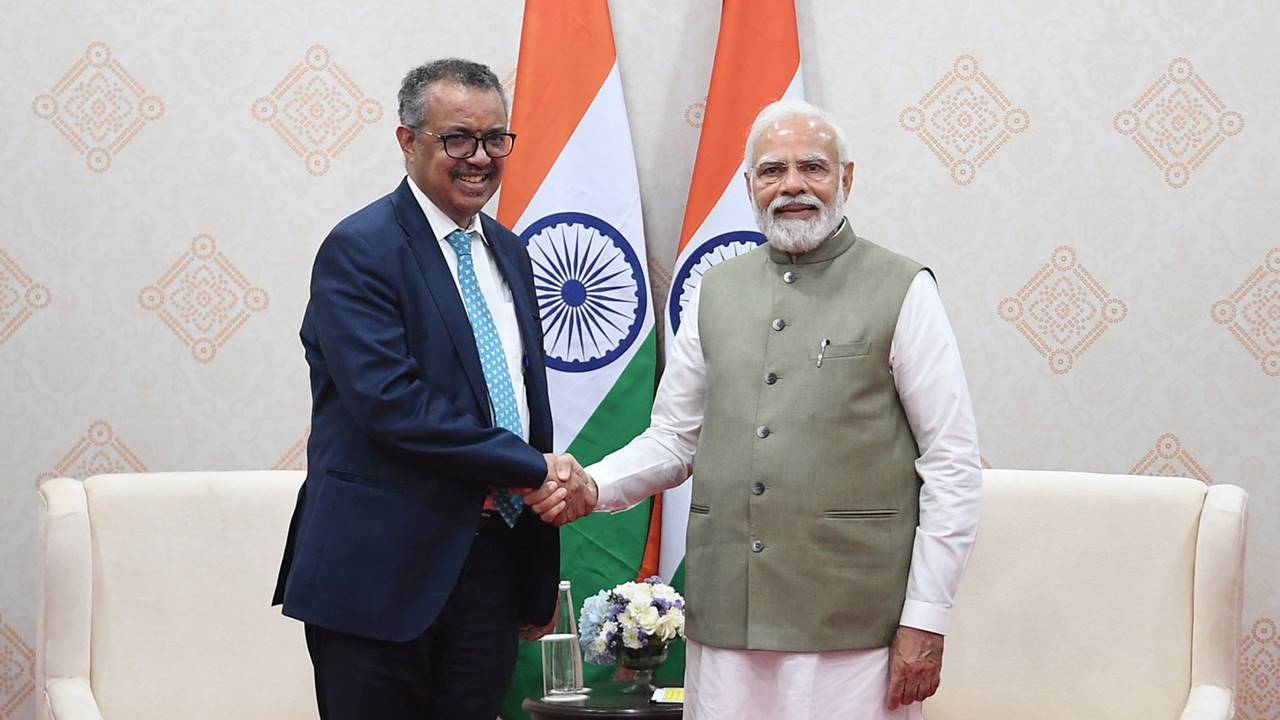The groundbreaking ceremony for the first-of-its-kind WHO Global Centre for Traditional Medicine (GCTM) in Jamnagar, Gujarat, will be held on Tuesday by Prime Minister Narendra Modi and World Health Organization (WHO) Director-General Dr Tedros Ghebreyesus. The Prime Minister has previously stated that the GCTM will go a long way toward improving societal welfare.

Dr. Tedros announced the creation of the WHO GCTM in India on November 3, 2020. With the signing of a host country agreement between the Government of India and the World Health Organization in March of this year, the Union Cabinet approved its installation in Jamnagar. India has pledged to fund the GCTM’s formation, infrastructure, and operations with an estimated $250 million.
To maximise traditional medicine’s contribution to global health, the GCTM will focus on evidence-based research, innovation, and data analysis. Its major goal will be to provide norms, standards, and guidance in traditional medicine-related technical domains.
The Ministry of AYUSH (Ayurveda, Yoga and Naturopathy, Unani, Siddha and Homeopathy) announced at a press conference on Monday that it will work to establish policies and standards for traditional medicine products and assist countries in developing a comprehensive, safe, and high-quality health system. The GCTM will assist in the implementation of the WHO’s Traditional Medicine Strategy (2014-2023), which intends to assist countries in creating policies and action plans to increase traditional medicine’s role in achieving universal health coverage. Traditional medicine is used by 80 percent of the world’s population, according to WHO estimates.
According to the WHO, 170 of the 194 WHO Member States have acknowledged using traditional medicine, and these countries have called for help in compiling “reliable evidence and statistics on traditional medicine practises and products.” The Jamnagar facility would act as a centre, focusing on developing a “strong evidence foundation” for policies and “assisting nations in integrating it as appropriate into their health systems,” according to the report.
In the field of traditional medicine, the Ministry of AYUSH and the WHO inked a project collaboration agreement (PCA) in 2016. The goal was to establish standards for traditional medicine practitioners’ training in yoga, Ayurveda, Unani, and Panchakarma. By assisting WHO in the formulation and execution of the WHO Traditional and Complementary Medicine Strategy, the cooperation aims to improve the quality and safety of traditional medicine as well as consumer protection.
At least 32 Memorandums of Understanding have been signed with institutes, universities, and organisations from the United States, Germany, the United Kingdom, Canada, Malaysia, Brazil, Australia, Austria, Tajikistan, Saudi Arabia, Ecuador, Japan, Indonesia, Reunion Island, Korea, and Hungary to collaborate on traditional medicine research and development.
Institute of Himalayan Bio-resource Technology (CSIR-IHBT), Palampur, a constituent laboratory of the Council of Scientific and Industrial Research, has signed an MoU with the National Research Institute of Chinese Medicine, Ministry of Health and Welfare, Taiwan, to collaborate in areas of mutual interest, such as medicinal plants, bioactive molecules, and herbal formulations.
The CSIR and the Bill & Melinda Gates Foundation have also signed an MoU to seek potential for scientific and technical research between Indian and international academics, including cooperation with foundation-funded organisations in traditional medicine and beyond.
